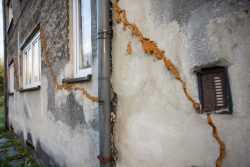03 December 2018
Citizens Beyond Coal – Tomasz Lamik, Poland
 Imielin is different from what most Poles understand by a city in Upper Silesia. Blocks built for miners usually define the landscape and identity of Silesian towns, but not in Imielin. Instead of the overwhelming, decaying architecture inherited from the decades of peak coal production of the last century, Imielin features green landscapes, a panorama of the Western Tatras and recreational water reservoirs.
Imielin is different from what most Poles understand by a city in Upper Silesia. Blocks built for miners usually define the landscape and identity of Silesian towns, but not in Imielin. Instead of the overwhelming, decaying architecture inherited from the decades of peak coal production of the last century, Imielin features green landscapes, a panorama of the Western Tatras and recreational water reservoirs.
Almost all of the 9,000 inhabitants of Imielin live in independent houses, some built eagerly not long ago. This, however, does not mean that mining is distant for locals.
 While extraction in the mine takes place at a depth of 550 metres, inhabitants of Imielin are very conscious of the underground activities: a shaky ground and other damages from mining have affected an estimated ten percent of the area of the town.
While extraction in the mine takes place at a depth of 550 metres, inhabitants of Imielin are very conscious of the underground activities: a shaky ground and other damages from mining have affected an estimated ten percent of the area of the town.
“The foundations of houses in the south are secured in the event of shocks and subsiding of land,” says Tomasz Lamik, chairman of the city council in Imielin. “For the resulting damage, the mine paid compensations. This is a normal practice here.”
If mining stopped here, the town could go ahead to plan further investments and attract new residents seeking a break from living in the big cities to the west.
 “We had assurances that the mine would not grow outside of its present area so people were not preparing for larger damages,” says Lamik. “But in October last year, we were informed that the new Imielin Północ (Imielin North) deposit will be exploited. Nearly half of the town lies on its planned surface. The extraction is to begin in two years and will last until 2046. They want to dig at a depth of only 180 metres, the cheapest possible method. The ground is expected to sink by at least 6 metres. It was a shocking news”.
“We had assurances that the mine would not grow outside of its present area so people were not preparing for larger damages,” says Lamik. “But in October last year, we were informed that the new Imielin Północ (Imielin North) deposit will be exploited. Nearly half of the town lies on its planned surface. The extraction is to begin in two years and will last until 2046. They want to dig at a depth of only 180 metres, the cheapest possible method. The ground is expected to sink by at least 6 metres. It was a shocking news”.
Find more of this story on just-transition.info
Text and photos: Jakub Szafranski
